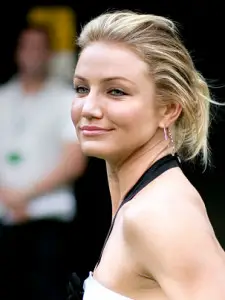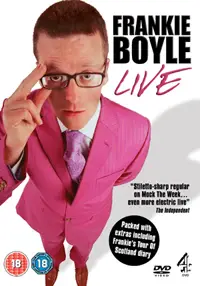Defamation and libel ‘ it was once believed that to be sued was an American disease. This might be true for some issues. However, it is the UK and not the USA that has some of the toughest and most critical libel and slander laws on the planet. Defamation is defined as the vilification of an individual or a group using untrue statements. In many of the cases below, such people have taken disputes to court over comments made about them. Most of the cases are from the British courts.
1. Simon Singh vs. British Chiropractors Association

One of the most high profile cases in recent history saw mathematician Simon Singh taken to court for criticising some of the work of the BCA as fraudulent. At the time it felt as though the whole of the scientific process hung in the balance ‘ the right to dismiss something for a critical lack of evidence is a privilege enjoyed within the scientific community that was now being taken into somewhere it did not belong ‘ the courtroom. Simon Singh won the case and later releases a book called ‘Trick or Treatment: Alternative Therapies in Trial’.
2. McLibel

Helen Steel and David Morris picketed a local branch of McDonalds with leaflets imploring people not to go in because their food was unhealthy and that they exploited their workforce and the environment. The case lasted ten years and the final ruling was in McDonald’s favour ‘ though with the acknowledgement that some of the claims in the leaflets were true. The case caused great embarrassment for the American company. Eventually, the European Court of Human Rights ruled that the couple had not been given a fair trial.
3. Sally Morgan vs. The Daily Mail

Another recent case from the UK, the right wing newspaper stood on shaky ground when it labelled ‘Psychic Sally’ a fraud. Regardless of what individual people feel about those who claim to be able to speak to the dead, the issue was never about whether she had these powers. The issue was whether The Daily Mail could prove their claims that she had employees planted in the audience and used an earpiece to receive information about the crowd from them. The newspaper could not prove these claims.
4. Blue Angel

It is often said that critiquing treads a fine line between reviewing and opinion. This goes for book reviews, film reviews and food reviews. For one Australian newspaper in 1984, their food reviewer Leo Schofield did cross that line. He was known as a caustic reviewer using a sarcastic writing style and went overboard in describing the food as overcooked. The newspaper appealed to ‘fair comment’ the best defence in such cases but the court disagreed ‘ mainly because they could not produce the evidence.
5. Cameron Diaz vs. The Sun

You’d think that with the tight British laws on libel that The Sun newspaper wouldn’t keep finding itself in court on a charge but it is arguably the one newspaper that finds itself in the dock more often than not. The newspaper took a photograph of Diaz with her friend Shane Nickerson, claiming that they were enjoying more than just a long-standing friendship. Both were in relationships with other people at the time, causing great distress to both couples. The Sun failed to prove their case on the basis of the single photo.
6. Google vs. ‘Monsieur X’

In one of the most unusual cases, in 2010 an unnamed French man sued the French arm of Google. When putting a term into any Google engine, there will be a list of autocomplete suggestions for the web surfer. In this case, entering his name into the search engine came up with a suggestion list which included ‘satanist’, ‘rape’ and ‘rapist’. He had a conviction many years before 2010 for an infringement with a minor, but it wasn’t rape. Google protested that it only offered popular searches but they lost the case.
7. Sarah Thornton vs. The Daily Telegraph

Another British newspaper here and that fine line again between reviewing and attacking. Sarah Thornton took exception to a review of her book Seven Days in the Art World. The review was written by Lynn Barber for The Daily Telegraph, something that Thornton referred to as ‘spiteful’. The allegation was over whether an interview was or was not given (Barber claimed she had not been interviewed but was listed as an interviewee) and whether Thornton had given copy approval to all interviewees prior to release.
8. Frankie Boyle vs. The Daily Mirror

The loud, ginger Scottish comedian is known not to pull punches when on stage or on television but the one thing he is not is racist ‘ he has always made a point of avoiding the subject in his life and has spoken out against it. Their comment was regarding a discussion on immigration on the satirical quiz show Mock the Week. The panel agreed that the section had been taken out of context ‘ the show often has role-playing features, and Boyle was taking the role of a racist thug.
9. Private Eye & Lord Lucan

Private Eye has a long history of litigation. Despite this, it remains a popular satire magazine for daring to report stories that even the mainstream media fear to comment on. The most famous case is one James Goldsmith who was accused by the magazine (along with a number of other individuals) to have sheltered Lord Lucan prior to his disappearance ‘ Lucan disappeared in 1974 after the murder of his children’s nanny and attempted murder of his wife; he has never been found.
10. David Beckham

Due to the First Amendment, libel laws are actually rather difficult to pursue and win in the USA. Defence of ‘freedom of speech’ and ‘opinion’ trumps untrue statements and are therefore not geared with automatic presumption on the part of the plaintiff. England Footballer David Beckham found this to his detriment when he sued magazine In Touch for suggesting that he had an affair with a former prostitute. US law states that the Beckhams had to prove the magazine acted with actual malice. They could not, so the Beckhams lost the case. In Europe, they would most likely have won.
Conclusion
Libel and defamation of character is sometimes a difficult issue to pursue, often because of the differing views on what constitutes libel on different sides of the Atlantic. In the EU, it is generally that the defendant must offer proof beyond reasonable doubt that their claim is true. In the USA, the truth of the matter is irrelevant; it is malicious intent that must be proven.










Leave a Reply